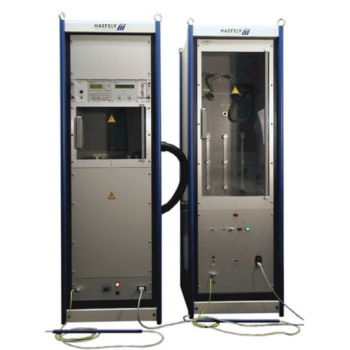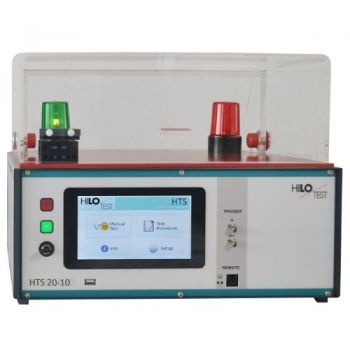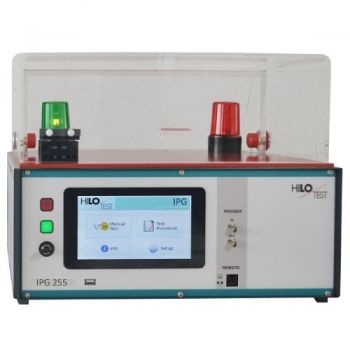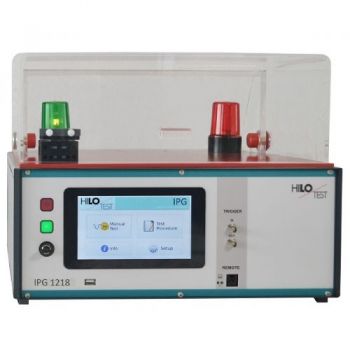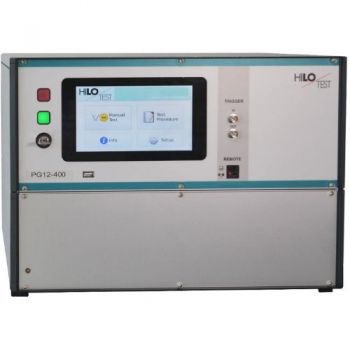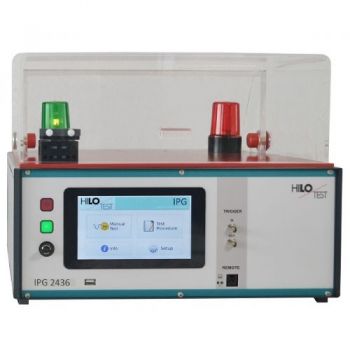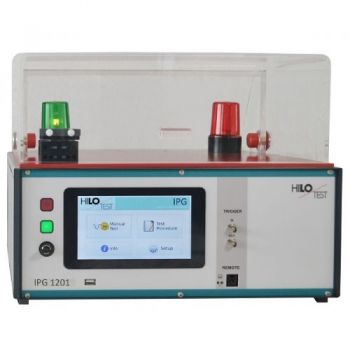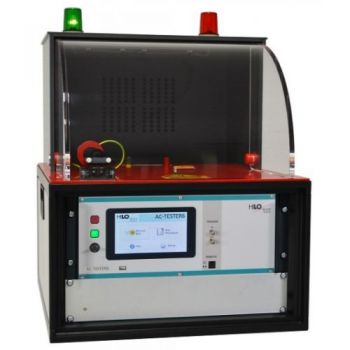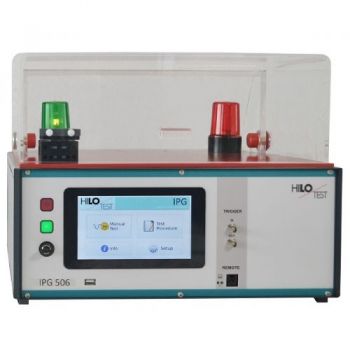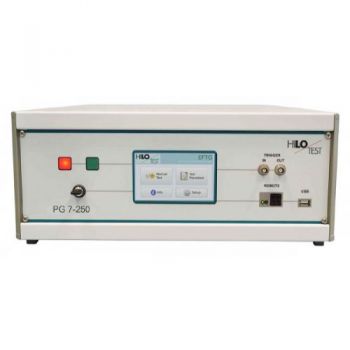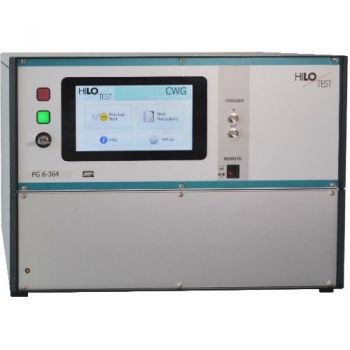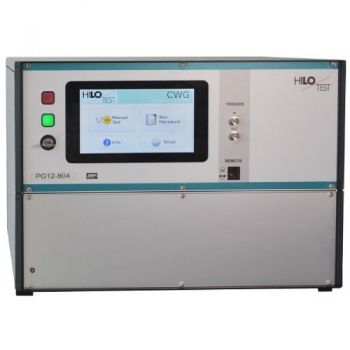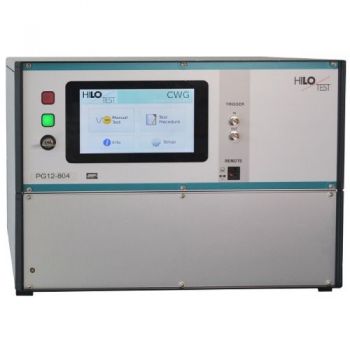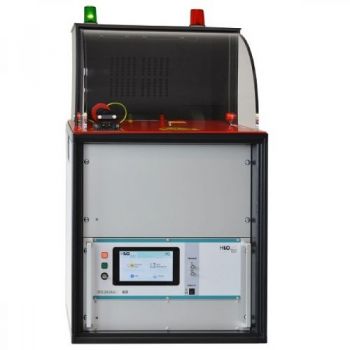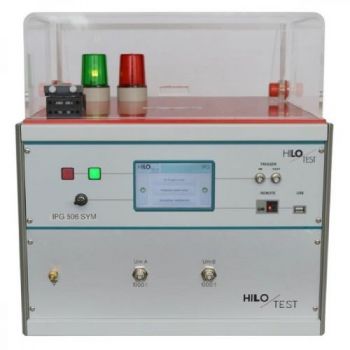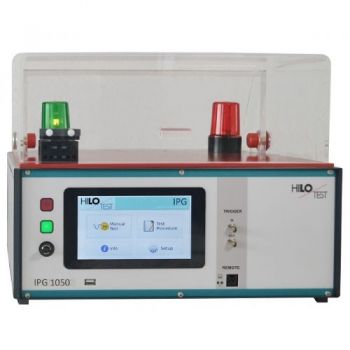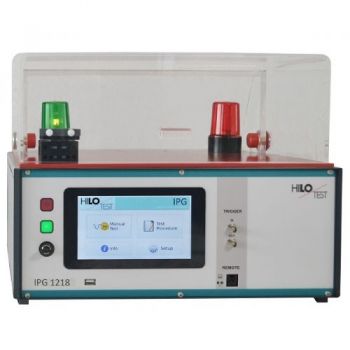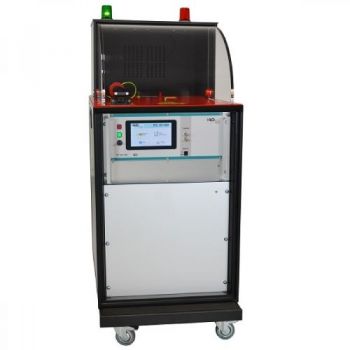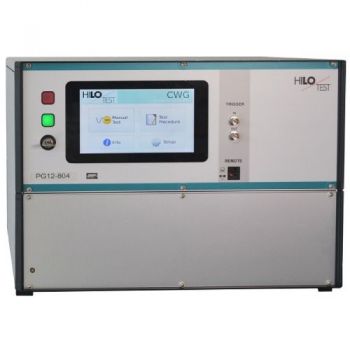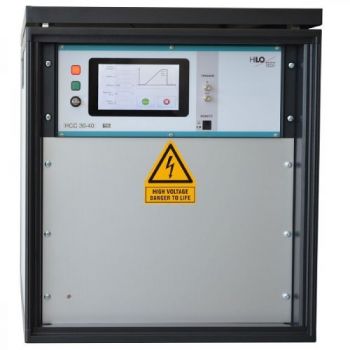
HCC xx-xx Capacitor charger with control unit
The HCC consists essentially of a control unit, a capacitor charger and other auxiliary equipment for the operation of generators.
HCC xx-xx
Capacitor charger with control unit
The HCC consists essentially of a control unit, a capacitor charger, and other auxiliary means for operating the impulse generator.
It features a microprocessor-controlled user interface and a 7” touch screen unit for ease of use. The microprocessor allows the user to execute either standard test routines or a “user-defined” test sequence. A standard USB port provides the ability to print a summary of the test parameters as well as the results to a USB stick.
The software program HCC-REMOTE allows full remote control of the test generator via Ethernet light guide as well as documentation and evaluation of test results, according to the IEC 17025. To record definite impulses, it is equipped with an Impulse Recording Function (IRF).
The control unit checks the connected charger and the pulse-forming network, PFN. The charging voltage, the number of pulses as well as their time interval can be set. The pulse current of the generator can be triggered in synchronism with the mains voltage.
The control signals for the charger are optically separated. The control signals for the pulse- forming network are transmitted via light conductors.
The HCC xx-xx is characterized by its compact design, simple handling and precise reproducibility of the test pulses.
| |
The energy storage capacitor C is charged via the charging resistor. The diodes D1 and D2 are used to protect against reverse polarity of the charger. By triggering the switch S1 of the energy storage capacitor Cs is discharged via the discharge resistor Re and the series impedance Rs + Ls. The desired HV pulse is generated.
To synchronize with the AC voltage connected to the device under test is a Sync-impedance connected to the output of the generator. The PFN generated in the sync signal is transmitted through an optical fibre to the control unit. If this synchronization is not connected, the trigger pulse is synchronous to the mains supply voltage of the control unit.
|
Optical fiber inputs and outputs (OPTO-OUT) |
|
|
The control signals TRIG, ES, POL, and SYNC are transmitted via optical fiber to and from the PFN. |
|
|
TRIG triggers the high voltage switch of the PFN |
Þ output |
|
ES controls the earthing switch in the PFN |
Þ output |
|
POL- switches the actuation of the trigger amplifier to the switch for inverted polarity (optional) |
Þ output |
|
SYNC signal from the PFN to synchronize the triggering |
Ü input |
Available types
Capacitor charger, series HCC xx-xx:
|
Device type |
Voltage [kV] |
Charging current max. [mA] |
Power [kW] |
Dimensions W*H*D [mm3] |
|
HCC 10-20 |
0 – 10 |
0 – 20 |
0.2 |
450*330*500 |
|
HCC 20-10 |
0 – 20 |
0 – 10 |
0.2 |
450*330*500 |
|
HCC 10-200 |
0 – 10 |
0 – 200 |
2.0 |
450*180*500 |
|
HCC 20-100 |
0 – 20 |
0 – 100 |
2.0 |
550*600*800 |
|
HCC 30-60 |
0 – 30 |
0 – 60 |
1.8 |
550*600*800 |
|
HCC 40-50 |
0 – 40 |
0 – 50 |
2.0 |
550*600*800 |
|
HCC 60-30 |
0 – 60 |
0 – 30 |
1.8 |
550*600*800 |
| |
|
Technical specification: |
HCC xx-xx |
|
Mainframe |
|
|
Microprocessor controlled touch panel |
7”, capacitive |
|
Optical Ethernet Interface for remote control of the generator |
Optional |
|
Interface for saving reports |
USB |
|
External trigger input/ output |
switch/ 10 V |
|
Connector for external safety interlock loop |
24 V = |
|
External red and green warning lamps |
24 V=, 40 mA |
|
Mains power |
90V - 264V, 50/60 Hz |
|
Dimensions of desk top case W * H * D |
see type |
|
Weight |
50 kg |
|
|
|
|
Highvoltagegenerator |
|
|
Charging voltage, adjustable |
see type ± 10 % |
|
Charging current max. |
see type |
|
Polarity (optional) |
positive (pos./neg.) |
|
Number of pulses, adjustable |
1 – 1000 |
|
Repetition time, adjustable |
40 – 1000 sec |
|
Mains synchronous triggering: |
|
|
Phase shift, adjustable |
0 – 360° |
| |
|
Options |
HCC |
|
Software HCC-REMOTE Test, for remote control |
|
|
With Impulse Recording Function (IRF) |
|
|
( XP, WIN7, WIN10 ) incl. 5 m fibre optic cable and PC Ethernet interface |
|
|
Sync. Impedance |
|
|
Sync. Impedance to the installation in the generator for power supply to 1000 V AC, Sync. Transfer to the power supply via optical fibre |
|


